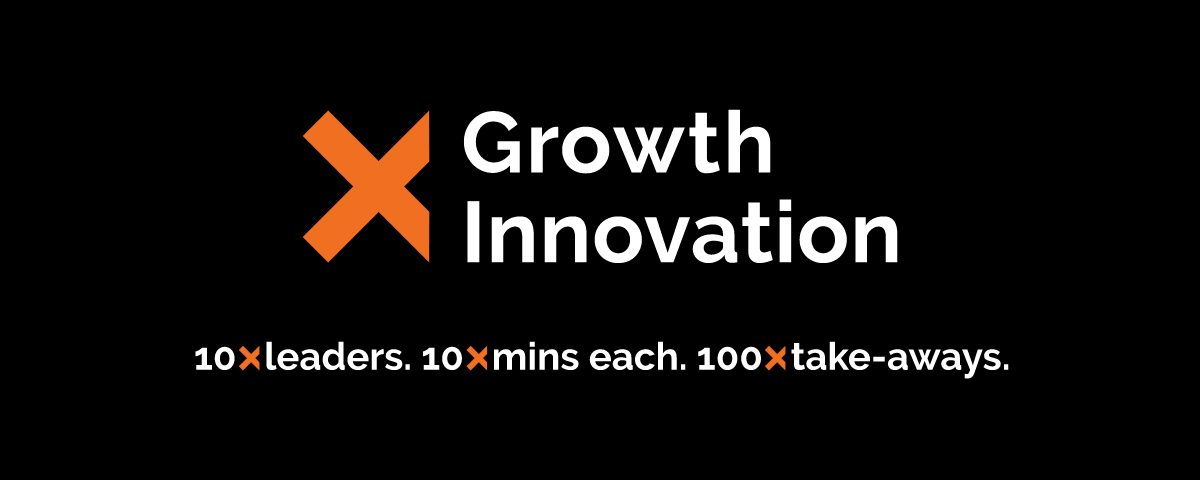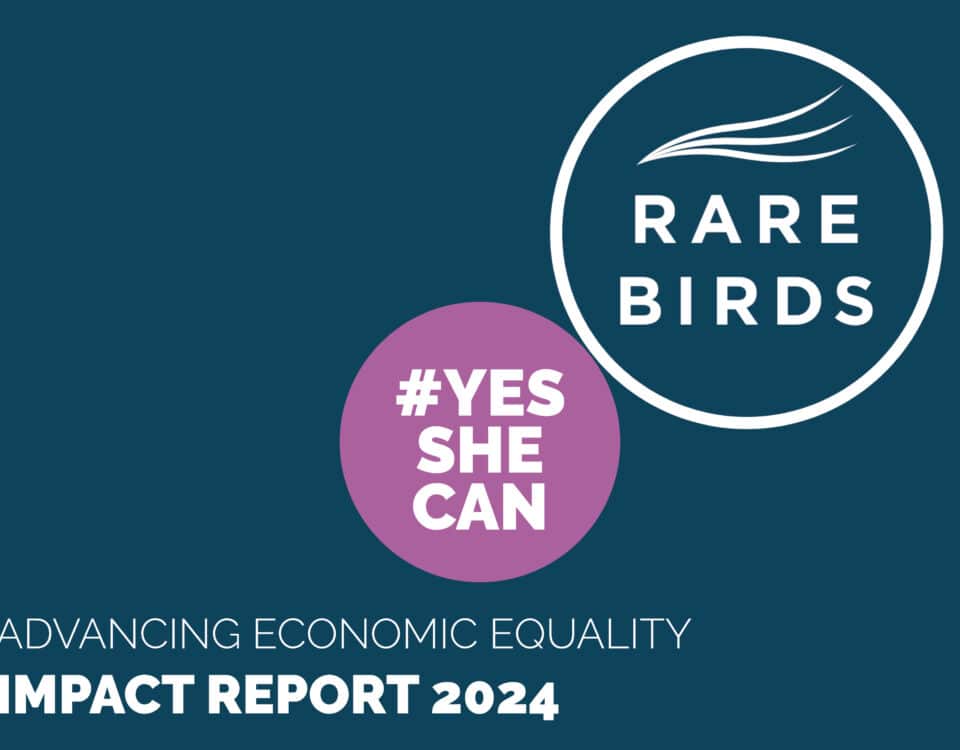10 speakers x 10 minutes = 100 take-aways
In partnership with Digivizer and with thanks to funding from the City of Sydney, Rare Birds hosted its first virtual summit: GrowthXInnovation. Introduced by Deputy Lord Mayor of Sydney, Clr Jess Scully, the event was a fast-paced and highly engaging series of talks from some of Australia’s most inspiring and insightful business leaders.
The Growth by Innovation topics and speakers were:
Emma Lo Russo, CEO Digivizer: Digital Marketing For Growth
Yaniv Bernstein, COO AirTasker: Building a Strong Culture
Jordan Lewis, Director of Growth, Deputy: High Growth Strategies
Gretta Addison, Global Director- Partnerships and App Ecosystem Xero: The Partnerships Advantage
Craig Davis, Advisor KPMG and Co-Founder Sendle: Leading Through Change
Sonia Nazaretian, Director Retail and Commercial Enterprise, Microsoft: Perspectives on Organisational Growth Mindset
Ben Chong, Partner Right Click Capital: Capital Raising in Australia
Ben Cooper, Founder of Tricky Jigsaw and O Six Hundred Kayaks: Aligning Purpose to Drive Progress
Jo Burston, CEO Rare Birds: Resilience and a Growth Mindset
There were so many great nuggets of wisdom shared on the day. Here’s our top 100 in order of appearance:
Clr Jess Scully, Deputy Lord Mayor of Sydney: ‘Innovation in the City’
? The diversity in the 200+ cultures who live and work in Sydney is an untapped resource of knowledge, expertise, global connections and ideas to draw on in times like this to innovate and grow.
? Businesses of all sizes should share resources and stay connected and virtual summits are a great way to accomplish that.
? It’s important at a time of increased isolation to think about how we can better integrate our online world with the physical sphere.
Emma Lo Russo, CEO at Digivizer: ‘Digital Marketing For Growth’
? The authoritative voice always gets more traction, so get your customers talking about you.
? When designing social campaigns, assume people are scrolling without sound.
? Every day we scroll through 110 metres of content – that’s 733 lengths of a mobile phone screen.
? When you are paying to drive customers to your website, don’t lose them straight away with poor UX – high speed loads and mobile-first design is crucial.
? Every 3 seconds of wait time decreases customer satisfaction by 16%.
? Video is the most cost-effective top-of-funnel lead generator.
? In Google, make sure you bid on your brand-related search items. If you don’t, you can bet your competitors will.
? Messenger bots fulfil your customers’ need and expectation for real-time help and support online.
? The LinkedIn algorithm is currently favouring video content.
? Maximise exposure by repurposing your video content on a YouTube channel.
? Test, measure and refine your content – different image, different copy, different platform – then amplify what works.
Yaniv Bernstein, COO at Airtasker: ‘Building a Strong Culture’
? An organisation has its own identity independent of the people who work there and part of that identity is its culture
? A culture exists whether any thought or effort has been put into creating one or not.
? Being a custodian of culture is like being a gardener: you can set up the right conditions for culture to flourish but you can’t force it or build it. Patience is a necessary ingredient.
? Culture has an immune system to protect it – problematic in a negative culture, but a huge boost in making a positive one more robust.
? You can influence culture by aligning incentives to it eg. if you value collaboration, it will damage the culture to reward individual effort because you are encouraging competition.
? Process is the bones and culture is the muscle – one can’t function without the other. If you introduce new processes, they must align with current culture or you need to amend your culture somehow.
? To influence cultural shifts, you need to build an alliance of advocates.
? Don’t tolerate bullshit – it leads to politics, ladder climbing for its own sake, and empire building.
? A culture of psychological safety removes fear and encourages growth and innovation.
? The key to a strong and healthy culture is an environment where everyone is encouraged to do their best work, on producing the best results, in collaboration with others.
Jordan Lewis, Director of Growth at Deputy: ‘High Growth Strategies’
? Product generated leads have a lower cost of acquisition at a time when paid and organics costs are increasing.
? The person in an organisation with the purchasing power is shifting, and often it’s the end user, not the CEO, who will drive sales of your core product. Particularly if you give them free product relevant to their needs.
? It’s good to have a roadmap, but it’s also great to experiment.
? Your team needs to be focused on outcome, rather than output.
? Think about whether there is a portion of your product you can give away to entice whole product sales.
? Turbocharge leads by developing a free product that is great as a standalone, but will amplify the ability of your core product when used in combination.
? Don’t be afraid to say goodbye to something that isn’t working. Fail fast and keep going.
? Creating product generated leads is an experiment – it’s not a side hustle or startup.
? It’s important to be responsive and adaptive to how the market is reacting.
? Be data driven. Let the data do the talking and remove all emotion from your analysis.
Gretta Addison, Global Strategy Director – Partnerships and App Ecosystem at Xero: ‘The Partnership Advantage’
? Even in this current environment of economic difficulty, there is a strong sense of ambition among small business owners who are still looking for ways to grow and improve.
? Partnerships are a way to continue to grow and become more resilient with less.
? In sport and in business, a team will always be stronger than an individual star player.
? Think about who you could combine with to create your own dream team.
? When resources don’t match ambitions, partners can help grow market presence, introduce new products, and improve customer experience.
? Use co-marketing partners to drive awareness.
? Other types of partners include distribution, product and co-selling.
? Look for the win-win: choose partners with shared goals.
? Never partner with an organisation that is not a good cultural fit.
? When building new partnerships, make sure you set it up right – have all the dispute resolution, decision making, IP, and commercials, well established at the start.
? Competing by using the strength of others is smart business.
? Building a dream team has a snowball effect – it takes time to get the first few partners on board and then it accelerates.
? Pick up the phone and call a potential partner today.
Ben Chong, Partner at Right Click Capital: ‘Capital Raising in Australia’
? The type of capital raising you do is dependent on the size and type of business you have.
? Grants are great if your impact aligns with government goals and initiatives.
? Crowdfunding is perfect for innovative product-based businesses and may be non-dilutive, or offer equity.
? Bank loans are only available when you are generating cash flow.
? When a group of individuals pool their talent, money and resources, they can have enormous success without the need for external funding.
? A period of growth, with potential to grow further, is a good time to approach angel investors and offer equity in the business.
? Venture Capital firms get their investment money from other sources such as superannuation funds, so are only interested in businesses with a high potential to grow, the ability to scale, as well as international market potential.
? Venture debt providers are also looking for positive cash flow and favour businesses with subscriptions, or recurring revenue.
? Broadly, investors are looking for great founders with a series of milestones already hit, who have a big vision that will result in a large company.
Sonia Nazaretian, Director Retail and Commercial Enterprise at Microsoft: ‘Perspectives on Organisational Growth Mindset’
? There is a direct proven link between positive growth, innovation and customer satisfaction and a healthy culture.
? Companies wishing to harness tech and digital innovation need to ‘renovate’ their culture.
? For a well-established business to evolve, it’s important to honour your past to define your future.
? The ‘learn-it-all’ does better than the ‘know-it-all’. (Not only a great message, but simple so it will stick).
? When you’re improving instead of proving, learning instead of knowing, and developing instead of demonstrating, life gets easier and your job is more enjoyable.
? Growth will come when you teach your staff a growth mindset and learning, challenging, and testing without fear of failure becomes part of the culture.
? Anyone can step up and make a difference, even if they don’t yet have power.
? Find what truly motivates you and let the business help you achieve it. This is not only true for leaders, but everyone in the business.
? You can’t properly engage and satisfy a diverse group of customers unless diversity and inclusion is embedded in your culture.
? Performance counts, but impact is transformative. Manage, measure and reward impact.
Craig Davis, Advisor at KPMG and Co-Founder at Sendle: ‘Leading Through Change’
? Most startups fail in the first few years and of those that do, in 65% of cases it is because of founder wellbeing and management issues.
? The better you understand yourself, the better you behave, which creates a positive impact that drives success.
? Auto-pilot is the brain’s default setting, but if you can be more present you will double your impact and output.
? Attention is a scarce resource, but you can train yourself to be more present.
? Simply focusing on your breath, which is always in the present, can help you train your attention.
? Great leaders are great listeners who are 100% present in conversations.
? Self-awareness will help founders not get tripped up by unconscious bias and unexamined assumptions.
? The better you are at who you are, the better you are at what you do.
? Leadership is not just about making time for people, it’s about making energy.
? Sleep is a legal performance-enhancing drug.
Ben Cooper, Founder at Tricky Jigsaw and O Six Hundred Kayaks: ‘Aligning Purpose to Drive Progress’
? We spend 99% of our time on BAU.
? To encourage growth and innovation, we should spend 70% on core business, 20% on adjacent and 10% on transformational.
? Purpose is a guiding light that can become blinding.
? Spend time with your customers to really understand their needs and then switch your focus from providing a solution to fulfilling a need.
? A customer needs-based approach opens up new opportunities for transformation and growth. Understanding that when a customer needs a ¼-inch drill bit, what it really needs is a ¼-inch hole in the wall to hang a picture, leads to new ideas for solutions such as adhesive hooks etc.
? Kodak thought it was in the business of making film but to the customers, it was preserving and safe-keeping their memories.
? Be brave and drive change because when you do you will see growth and the momentum to push forward will grow.
? Uber succeeded because it made it easier for the customer to meet their needs.
? Your head and heart need to work together.
Jo Burston, CEO at Rare Birds: ‘Resilience and a Growth Mindset’
? People with a fixed mindset believe their talent and ability is set at a certain level and so failure is a reflection on them personally.
? People with a growth mindset are more resilient because they believe they can always improve their talent and ability through extra effort. They relish challenges as an opportunity to grow.
? If you see and believe that your success comes from persistence, effort, determination and training, then you, your business, and your abilities will grow.
? If you find yourself saying ‘Well done – you’re so clever!’ to your kids, you are building a fixed mindset. Pivot instead to praising their effort and you will set them up for a more rewarding life.
? Failure is data – with a growth mindset, you are able to look objectively at what could have been done better to achieve a desired outcome. It is not a personal failure, but a failure of process.
? There is a big difference between judging and evaluating outcomes and it’s no surprise which one leads to growth.
? Progress over perfection: When trying something new, you may not get it right the first time, but chances are you will test and tweak for a while until everything aligns perfectly. So begin.
? An entrepreneurial mindset introduces innovation, creative problem-solving, strategic thinking, collaboration, curiosity, resilience and more.
? With an entrepreneurial mindset, the individual is constantly revolving through the process of ‘ask, try, do, reflect’.
? Get a mentor: being able to learn from someone who has already walked the pathway, is the most valuable thing to have in business. Let their hindsight be your foresight.
? Fear is debilitating. It has to be looked at in the face or it will overwhelm you.
? Failure is easy – success is a journey down a long and winding road.
? You can’t get to right until you know wrong. Be gracious in error.
? Take risks – mediocrity never changed the world or built businesses.
? Self belief is very powerful. You can change your attitude and take charge of your life and make it whatever you want, but you have to show up. You have to take action.
If you missed out on this amazing event and would like to experience it in full, you can purchase a video recording.




